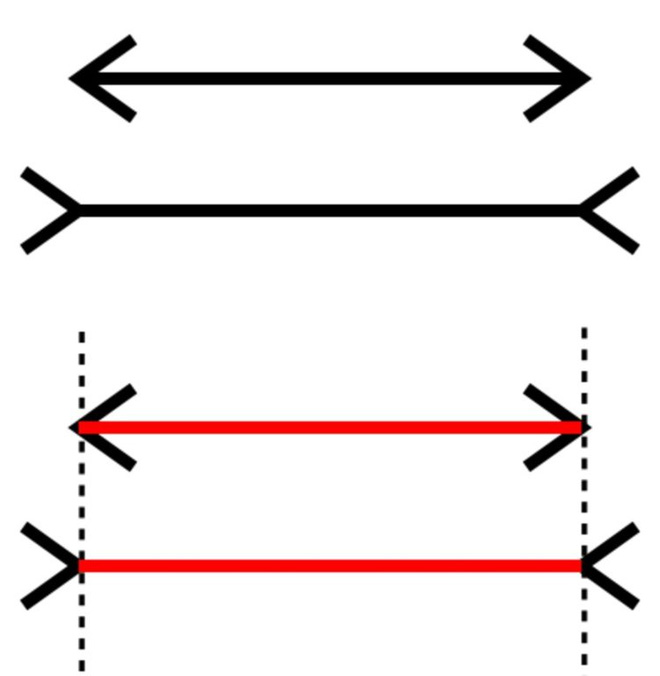Doctor of Philosophy of Science: We may have discovered traces of aliens already, we just don't know what it is.
If scientists discovered evidence of alien life, would they recognize it? Life on planets outside the Solar System can be very different from what humans have ever known, and we may not even recognize any of the biological signs it produces.
In recent years, mankind has changed many theories about biology and the conditions of life on other planets. That is also the premise for the next innovation, to help scientists search more accurately. But we still only rely on our present understanding of life, and that is unlikely to be true in the future.

This is a big problem for those who are seeking extraterrestrial life. As Scott Gaudi of the Nasa Advisory Board said: "I have now spent more than 20 years in this field, and one thing is for sure is that I strongly expect surprises to happen."
But should we rely on unexpected things? In the past, there were many breakthroughs that could not have been anticipated, such as the discovery of penicillin or the accidental discovery of cosmic microwave background radiation left over from the Big Bang.
And when it comes to extraterrestrial life, are scientists confident enough that "just a careful analysis can we detect life there?" In this quest, perhaps luck will prevail, because even if there is life there, we will probably miss it immediately.
"We often miss things we think we will never see," says cognitive psychologist Daniel Simons, who is famous for his research on unintentional blindness.
His experiments have shown how people can miss the sight of a gorilla slapping a hand on their chest, right in front of their eyes.
The same experiments show how blind we are, for cards that have been swapped, such as a four-card card with four black hearts (while the hearts have a red heart. ). In the example of the gorilla, we would not miss it, if we really focused and watched carefully. For scientists too, they might miss an anomaly in an exoplanet because in their heads only expect to find theoretical lives, which they believe to be correct.

If a 4-piece card has a black heart, you will immediately think of it as a 4-card leaf without a doubt.
There are also many related examples throughout the history of science. Philosophers describe this phenomenon as "observing the eye but still heavily hypothetical" .
"What we take in sometimes depends heavily on theories, concepts, underlying beliefs and previous expectations. We can even favor studies that are considered more important, according to this awareness "
For example, when we first found evidence of low ozone in the Antarctic atmosphere, people considered it a research error. Just before trying to rule out the results, the scientists made a final check, and thankfully, humans discovered that there was actually a huge ozone layer gap in Antarctica.

Why are we planning to ignore such a big hole?
The same thing can happen in the search for extraterrestrial life.
Scientists who study planets in other solar systems (exoplanets) are overwhelmed by the number of observing targets. Over the past 10 years, they have identified more than 3,650 planets - the number is still increasing day by day. And with special missions like NASA's "Alien Hunter" project TESS, this trend will continue in the future.
For every newly discovered exoplanet, there are many difficulties in checking physical and chemical properties. Perhaps a target will be labeled "inappropriate" because it has not been thoroughly researched? This is too easy to imagine, but pondering that will help scientists to be more careful or access to new theories about the condition of life.
However, we should not exaggerate the act of visual observation but still heavily hypothetical. In the Müller-Lyer illusion, the upper lines with the tips of both ends facing outwards are obviously shorter than the lines with the cone pointed inward, but they are essentially equal.

Müller-Lyer illusion
And now is the mystery of the experiment, even though we know these two lines are the same length, but try to blink for a moment and then look back, the illusion still exists right before our eyes.
Similarly, a scientist with a keen eye can notice anomalies in his data, including his beliefs, that the accuracy of that data does not change. When a scientist realizes this, soon this right perception will spread throughout the community.
History also shows that scientists can detect surprising phenomena, even when they are very conservative.
19th-century physicist David Brewster believes that light is made up of particles traveling in a straight line. But this does not affect his observations of many phenomena related to light, such as the study of birefringence (the phenomenon that occurs when light passing through certain crystals will be separated into Two light rays: ordinary ray and extraordinary ray, depending on the polarization state of the light ray)
We need to be more open
Certainly scientists cannot complete these studies just by observing. Scientific observations need to follow a certain framework. If we are "expecting surprises to happen" then the theory should not heavily influence what we observe.
We need to keep an open mind, encourage the exploration of phenomena in the style of Brewster and similar scholars in the past. That would be an encouragement for completely new groundbreaking ideas.
Until now, scientists still had prejudices about the work of discovering alien life, they called it "fishing expeditions", capable of restraining the speed of development of science. When we dive into what we need to explore, we have to know that we don't know what we might find.

Many past examples show that unorthodox ideas can sometimes be mercilessly suppressed. Agencies like NASA need to learn from such cases, if they truly believe, in the search for extraterrestrial life we can "rely on surprises".
Based on an article by Peter Vickers, Associate Professor of Philosophy of Science, Durham University.
You should read it
- ★ Unusually large amount of methane detected on Saturn's moon: Is it alien life?
- ★ Discovering 'alien antenna' on the Moon?
- ★ The Russian astronaut announces to find extraterrestrial life on the ISS Space Station
- ★ Is the 'alien skeleton' found in Peru true?
- ★ If people 'occupy' the Sun 2.0 system, how different is life there from Earth?